'Reinventing Elvis' reveals why Presley nearly canceled his '68 Comeback Special live set
- Oops!Something went wrong.Please try again later.
- Oops!Something went wrong.Please try again later.
- Oops!Something went wrong.Please try again later.
- Oops!Something went wrong.Please try again later.
- Oops!Something went wrong.Please try again later.
The year was 1968. Political assassinations and racial strife were tearing at the national fabric. The last thing anyone was asking for was an Elvis Presley TV special.
And yet that NBC show – the fabled '68 Comeback Special, officially called "Singer Presents ... Elvis," after its sewing machine company sponsor – managed to lift collective spirits and revive the 33-year-old rock icon’s career.
The special was re-created in living color in “Elvis,” Baz Luhrmann’s 2022 biopic with Austin Butler donning the gleaming black leather suit.
A new documentary, “Reinventing Elvis: The ’68 Comeback,” (streaming now on Paramount+) explores that seminal TV moment with reflections from Steve Binder, 90, who as a 35-year-old producer befriended Elvis and battled his manager, Colonel Tom Parker. USA TODAY caught up with Binder to discuss the film's revelatory highlights:
A terrified Elvis Presley threatened to quit while the studio audience waited for him to perform
Elvis was so nervous about performing in front of an audience that he called Binder into the makeup room just before taping began to say he wouldn't go on.
“He said: ‘Steve, I have forgotten everything I’ve ever said or sang. I can’t go out there, I’ll just embarrass myself,’ ” Binder recalls. “I just told him that while I had never pushed him before on anything, he had to go out there. And I left the room. I was nervous. Only when I saw him on the monitor did I realize he was going to come out.”
That loose jam session in the '68 Comeback Special was a happy accident
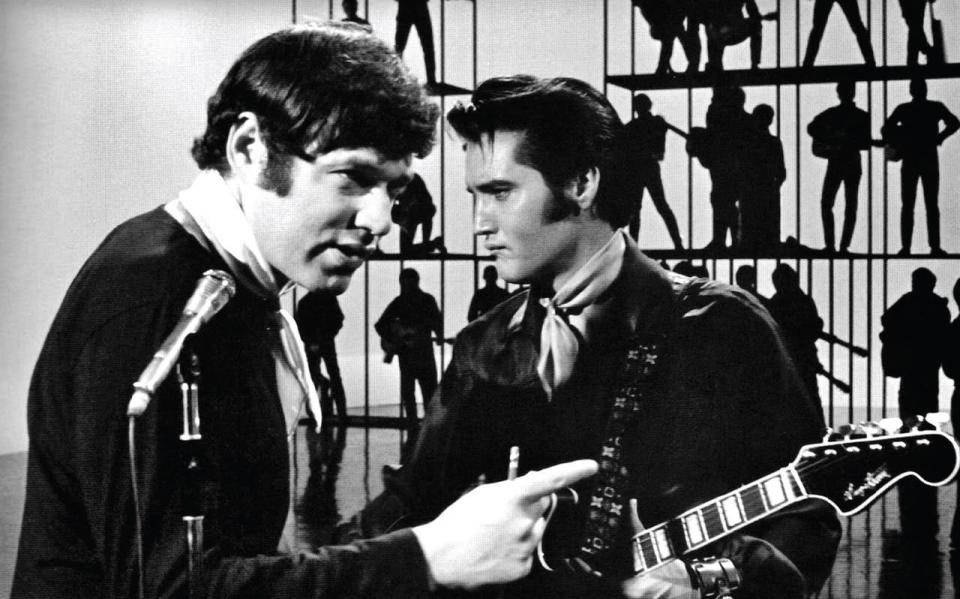
Binder had already organized a number of set pieces when he overheard Elvis and his entourage jamming every night in his dressing room.
“I told the Colonel 'You have to let me get cameras in there,' and he said, ‘Over my dead body,’ ” says Binder, who pestered Parker until he agreed to an onstage re-creation of the jam session. "He was sure we weren’t going to use any of it. But it turned into the heart and soul of the show.”
Elvis' black leather suit was inspired by Marlon Brando in 'The Wild One'
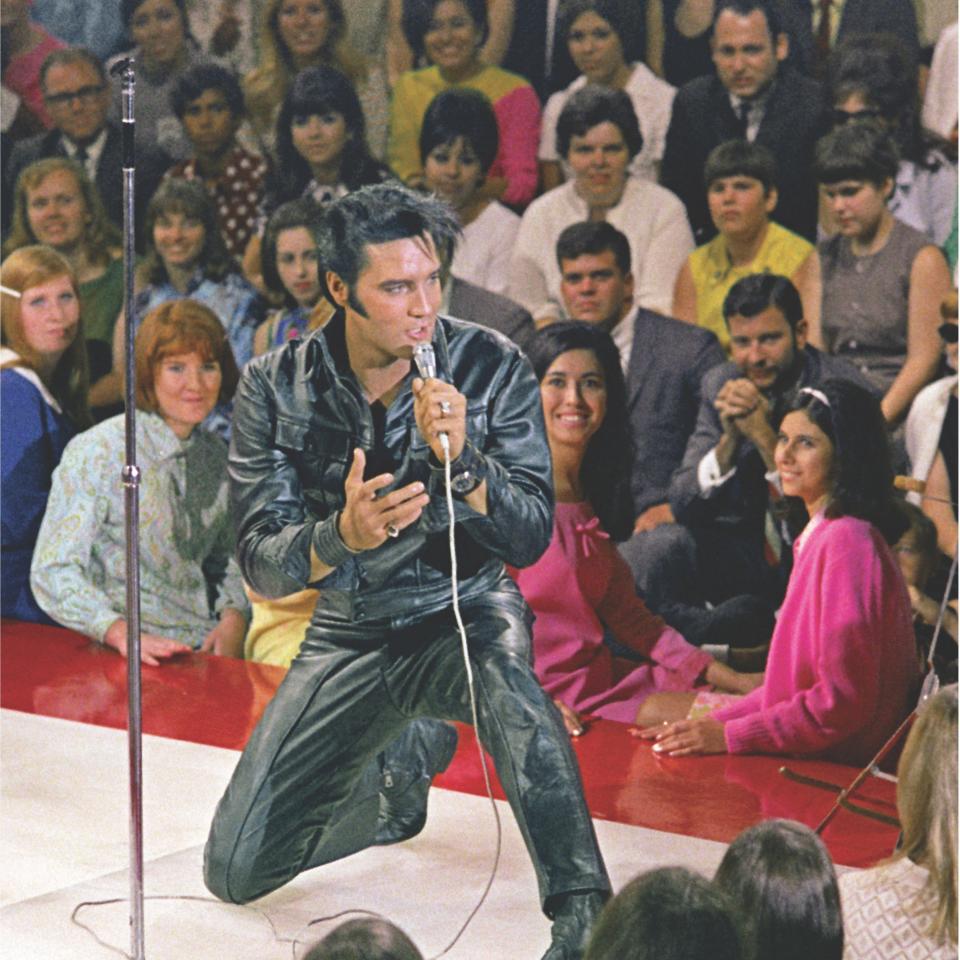
Binder says Elvis was obsessed with Marlon Brando and his star turn as a motorcycle gang member in 1953's “The Wild One,” complete with a black leather jacket.
“Elvis had a picture taken of himself sitting on a Harley-Davidson, imitating the Brando picture,” Binder says. “I told our costume designer that I wanted Elvis to have a leather outfit, but it couldn’t be anything you could ever buy in a store. It became his signature look.”
Did Priscilla Presley attend the taping of the '68 Comeback Special?
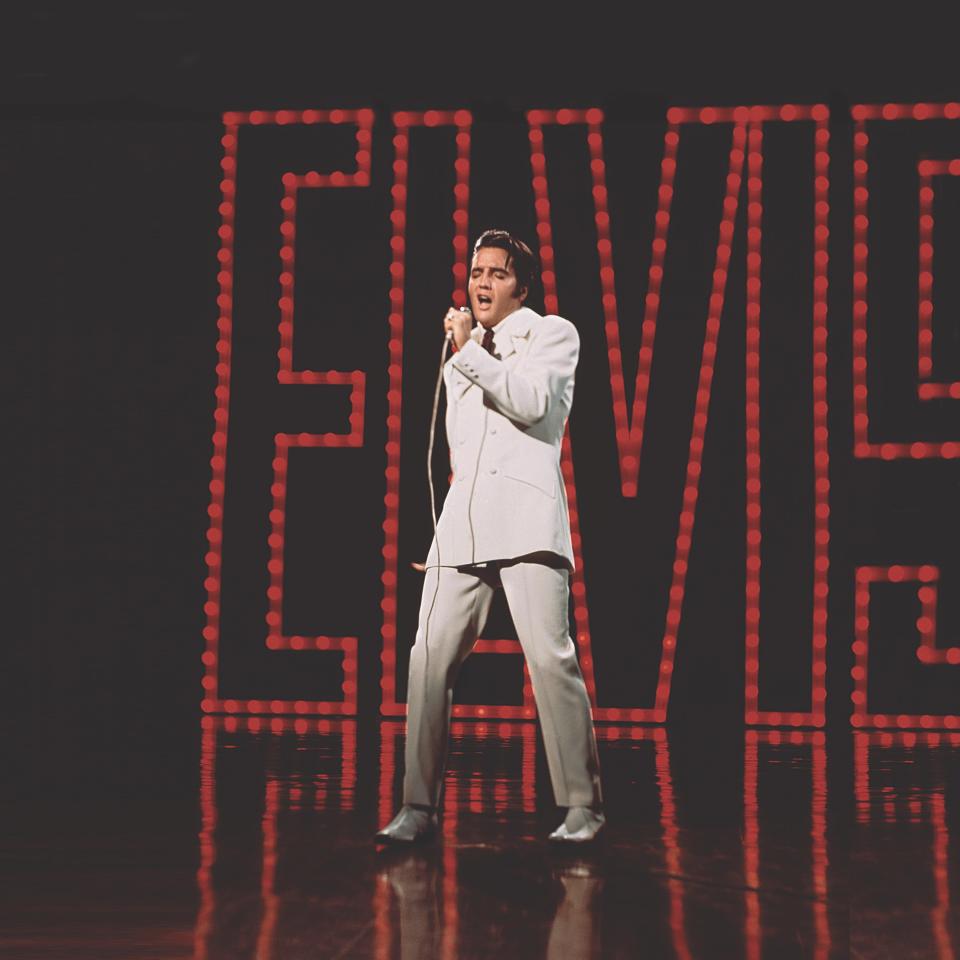
Elvis, wife Priscilla and their newborn, Lisa Marie Presley, moved into a Beverly Hills rental while taping the special, Binder says. But Elvis asked if he could stay in his large dressing room at NBC Studios. The singer would spend most nights there, Binder says, joking and playing music.
"The only time Priscilla came to NBC was when we did that pre-planned live orchestra medley of Elvis’s old hits," Binder says. "Other than that, we never saw her. I didn’t even know she was there until I saw it on tape, she was up in the bleachers."
Did Colonel Tom Parker leave Holland after being implicated in a murder?
In a striking moment from the documentary, Elvis expert and author Alanna Nash (“The Colonel: The Extraordinary Story of Colonel Tom Parker and Elvis Presley”) says Parker’s abrupt and mysterious departure from his native Holland happened around the same time a woman in his neighborhood was bludgeoned to death.
Once in the U.S., he changed his name from Andreas Cornelis van Kuijk and never applied for citizenship.
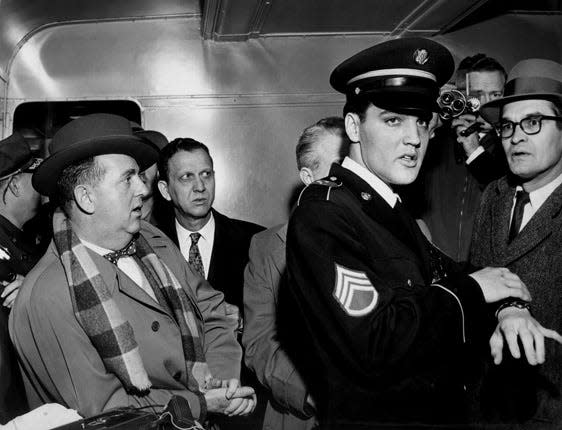
“There is no firm proof that he killed a woman in Holland, but he was privately implicated in a 1929 murder there, and as someone who has studied that intently over a long period of time, I do believe he had some involvement with that, though perhaps only as an accident during a robbery,” Nash tells USA TODAY. “He left Holland very quickly in that very window of 1929, and I know that he had a file in the Central Police Archives in the Hague in the '80s.”
Nash, who says she met with Parker three times before he died, has reviewed stacks of his correspondence over the years. “Something dark and deeply regrettable happened in Holland that he couldn't fix or set right. And he could fix anything," she says. "The upshot is that whatever it was, Elvis also paid the price.”
Presley on many occasions expressed interest in performing for European and Asian fans, but Parker never agreed to a tour outside the U.S.
Binder says he was shocked by the allegation but would not comment further. “The Colonel was capable of anything," Binder says. "I saw rich and powerful TV executives who were terrified of him.”
No one recognized Elvis Presley when he strolled out on Sunset Boulevard
In the documentary, Binder says Elvis asked him what he thought of his career, and Binder replied that it was "in the toilet." Later, Binder told Elvis that if they walked onto Sunset Boulevard, no one would recognize him. And, he says, nobody did.
"There was no PR that Elvis was in Los Angeles − there were so many characters with long sideburns and sunglasses, no one knew it was Elvis," he says with a laugh. "Now, had they known it was the real deal, they would have reacted big time. ... After that, he seemed to trust me more."
Did Steve Binder and Elvis Presley remain friends after the ’68 Comeback Special?
Binder’s fondness for his time with Elvis is evidenced by a framed photo of the two that hangs in his office, next to a poster for the iconic “T.A.M.I. Show” he also produced. But after five months of intense bonding, they never spoke again.
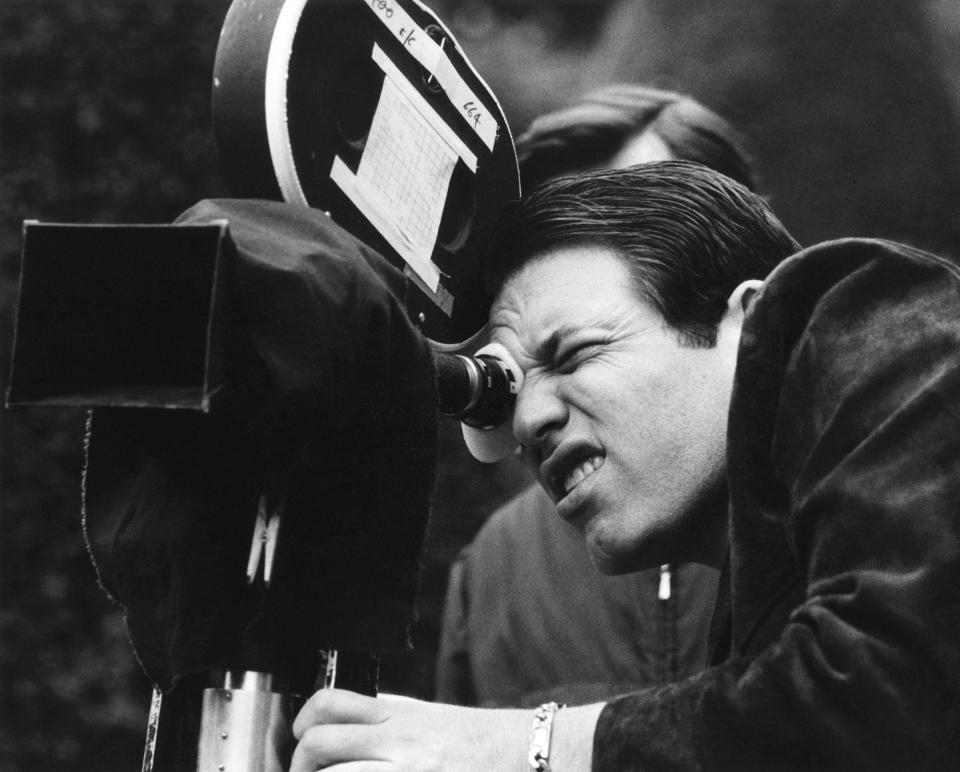
“When we were finished, Elvis gave me his phone number but I never could get through,” Binder says. “I was persona non grata with the Colonel,” who had wanted more control over the special.
When was the last time Steve Binder saw Elvis Presley?
Binder made a few trips to Las Vegas to see the singer perform during his residency, an outgrowth of the spark ignited by the '68 special. He hoped to reconnect, and once again he was rebuffed.
“The first time I went, it was amazing, and I went backstage to congratulate him, but I was turned away,” Binder says. “Then about a year later, I went again, but he was at that point turned away from the audience, engaging less. It was over.”
Fact checking the 'Elvis' movie: Did he really fire Colonel Tom Parker onstage in Las Vegas?
This article originally appeared on USA TODAY: 'Reinventing Elvis': Paramount Plus doc revisits '68 Comeback Special

